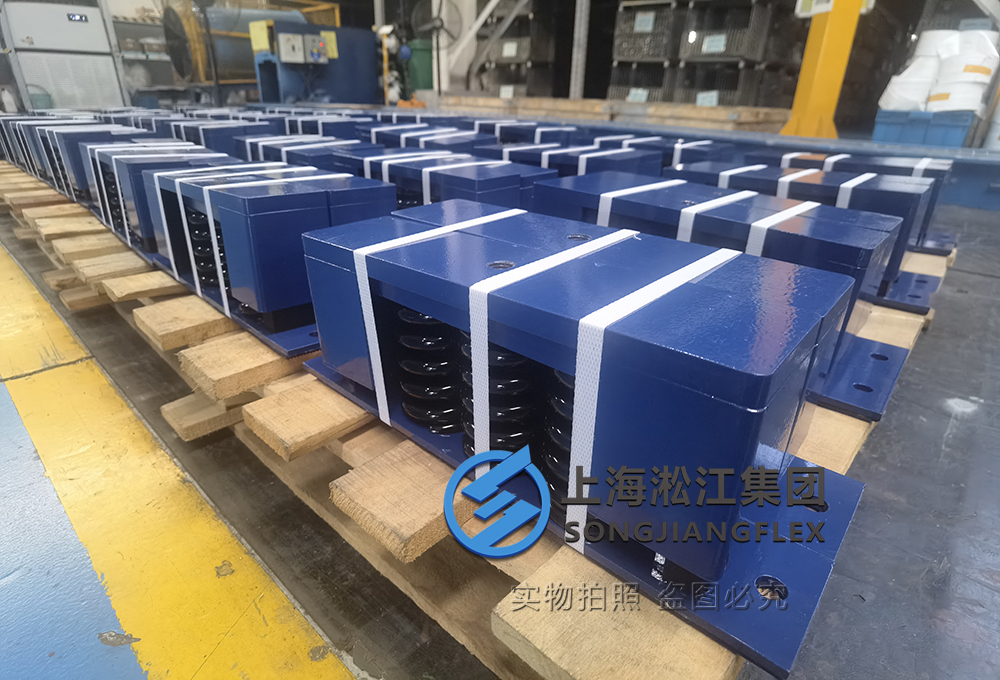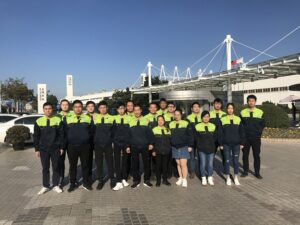What Are the Advantages of Adjustable Spring Isolators for diesel generator sets?
Tired of vibration, noise, and unstable generator performance?
Diesel generators are known for their high power output, but also for their intense vibrations and noise. Without proper isolation, these vibrations can damage equipment, reduce lifespan, and cause operational downtime. Adjustable spring isolators offer a professional solution—providing accurate load support, structural stability, and long-term vibration control.
Adjustable spring isolators significantly reduce structural vibration and noise caused by diesel generator sets. They feature adjustable height, high dynamic load capacity, and a stable spring design that protects power equipment foundations and extends generator life.
Let’s explore how they solve key challenges in generator installations and what benefits they offer.
1. Why do diesel generator sets require vibration isolation?
Diesel generator sets generate intense low-frequency vibrations due to internal combustion, high-speed rotation, and heavy structural mass. These vibrations, if not isolated, can:
-
Crack concrete foundations
-
Loosen bolts and connections
-
Transmit noise into surrounding areas
-
Accelerate wear on connected equipment
Installing a vibration isolator for power equipment is essential to decouple the machine from its mounting base and prevent these issues. Spring isolators are particularly effective because they absorb and dissipate energy, even under dynamic loads.
2. How do you reduce the vibration of a generator?
The most effective way to reduce generator vibration is to use adjustable spring isolators designed for the generator’s weight and frequency characteristics. These isolators:
-
Use steel springs with optimized stiffness to absorb vertical and horizontal vibrations
-
Include anti-slip rubber pads or damping elements to reduce high-frequency noise
-
Feature threaded height adjustment to maintain load balance even on uneven foundations
With proper sizing and positioning, these isolators become the foundation of a diesel generator vibration control system.
3. How to reduce the noise of a diesel generator?
Most generator noise is not just airborne—it’s transmitted through the floor and structure due to vibration. Adjustable spring isolators reduce this structure-borne noise by:
-
Isolating the base of the generator from the floor
-
Minimizing resonance with structural materials
-
Reducing mechanical coupling with surrounding walls or steel frames
Combined with acoustic enclosures or room soundproofing, noise reduction in diesel generators becomes far more effective.
4. Why is my generator vibrating too much?
Excessive generator vibration is often caused by:
-
An unbalanced or misaligned rotor
-
A weak or cracked foundation
-
Inadequate or worn-out mounts
-
Uneven load distribution
If your generator feels unstable or emits loud noise during operation, it’s time to inspect the mounting system. A generator room vibration solution using adjustable spring isolators can correct alignment, redistribute weight, and isolate unwanted movement.
5. What makes adjustable spring isolators ideal for generator sets?
Unlike fixed mounts, adjustable spring isolators allow on-site leveling and load correction. Their key advantages include:
-
height adjustability: easily level the generator on uneven surfaces
-
high load capacity: handle the full weight of industrial diesel generators
-
deflection tuning: match the isolator’s stiffness to the system’s frequency for optimal performance
-
corrosion resistance: powder-coated springs and treated metal parts for outdoor or humid environments
They serve as an essential part of any industrial generator mounting system, offering precision and durability.
6. How does adjustable height improve isolation performance?
Height adjustability plays a critical role in:
-
equal load distribution: prevents one side from bearing too much stress
-
consistent vibration isolation: ensures all isolators work in sync
-
post-installation fine-tuning: allows quick adjustments after generator commissioning
This functionality is especially important for projects with construction tolerances or irregular flooring, making it a key factor in genset foundation isolation.
7. How can you tell if your generator is overloaded?
Overloading can lead to:
-
stronger-than-normal vibrations
-
power fluctuations
-
unstable or pulsating output
-
unusual sounds or overheating
If isolators are sinking too far or the generator is “bouncing,” it may be overloaded. Ensure the anti-vibration mount for genset is correctly rated, and install monitoring systems to track real-time load.
8. Why does my generator pulsate when running?
Pulsating movement may be caused by:
-
intermittent fuel delivery
-
electrical load instability
-
loose mounting hardware
-
uneven weight distribution
Spring isolators with internal damping can suppress these pulsations and provide a more stable base, especially for large generators.
9. How do spring isolators compare to rubber mounts for generators?
| Feature | Spring isolator | Rubber mount |
|---|---|---|
| Load capacity | High | Moderate |
| Deflection range | Wide (up to 25–50 mm) | Limited |
| Service life | 3-5 years | 1-2 years |
| Frequency isolation | Excellent for low frequency | Poor for low frequency |
| Applications | Heavy-duty, industrial | Light-duty, small generators |
For industrial use, heavy duty spring isolators are the preferred choice due to better long-term performance and superior vibration reduction.
10. Are adjustable spring isolators easy to install and maintain?
Yes. These isolators are engineered for quick installation with minimal tools:
-
Pre-drilled base plates for anchor bolts
-
Threaded rods or leveling nuts for precise adjustments
-
Some models come with anti-skid pads for extra grip
Maintenance is simple: check for alignment and spring fatigue once or twice a year. There’s no lubrication or frequent replacement needed.
11. Do I need a surge protector for my generator?
Yes. Vibration isolation is mechanical protection, but generators also need electrical protection. Surges from lightning or grid failures can damage your generator’s control system. A surge protector:
-
Guards sensitive electronics
-
Reduces fire risk
-
Complements the role of vibration isolators
12. Is surging bad for a generator?
Yes. Frequent surging causes internal components to oscillate and vibrate erratically, placing stress on the mounting system. Over time, this leads to cracks, noise, and failures. Combining diesel generator vibration control with electrical stability reduces this risk.
13. Can you feel a generator while it’s running?
You shouldn’t. If you feel vibrations through the floor or structure while the generator is on, it means the isolators are not working effectively—or none are installed at all. With the right adjustable spring isolator, you’ll barely notice the generator’s presence in the room.
14. Where are adjustable spring isolators used?
They are widely used in critical applications, including:
-
Hospital emergency power systems
-
Data center backup power rooms
-
Commercial building rooftops
-
Power test benches and mobile generator trailers
-
Manufacturing plants and refineries
Their versatility makes them a core part of any generator room vibration solution strategy.
Adjustable spring isolators are essential for stabilizing diesel generator sets, reducing vibration, lowering noise, and extending equipment lifespan. For serious power systems, isolation isn’t optional—it’s foundational.





